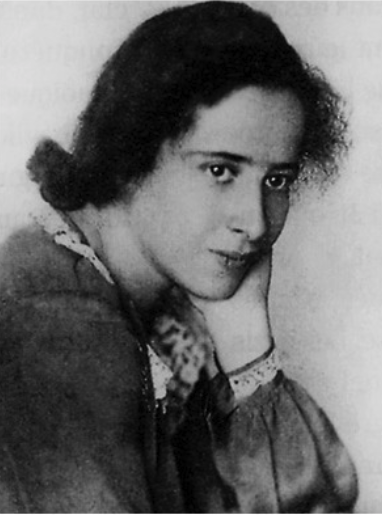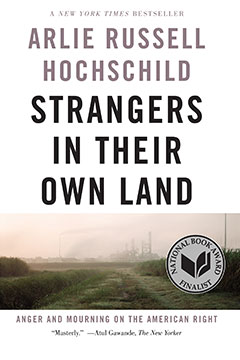By Ron Liskey | May 1, 2021
Hannah Arendt
Selected Books by Hannah Arendt

The Origins of Totalitarianism
Arendt explores the institutions and operations of totalitarian movements, focusing on two major forms of totalitarian government in our time–Nazi Germany and Stalinist Russia–which she recognizes as two sides of the same coin, rather than opposing philosophies of Right and Left. From this vantage point, she discusses the evolution of classes into masses, the role of propaganda in dealing with the nontotalitarian world, the use of terror, and the nature of isolation and loneliness as preconditions for total domination.
The Origins of Totalitarianism begins with the rise of anti-Semitism in Europe in the 1800s and continues with an examination of European colonial imperialism from 1884 to the outbreak of World War I, and then traces the emergence of racism as an ideology, and its modern application as an “ideological weapon for imperialism”, by the Boers during the Great Trek (1830s–40s) in the early 19th century.
Arendt argues that totalitarianism was a “novel form of government,” that “differs essentially from other forms of political oppression known to us such as despotism, tyranny and dictatorship” in that it applied terror to subjugate mass populations rather than just political adversaries.
Arendt also theorized that, owing to its peculiar ideology, “totalitarianism has discovered a means of dominating and terrorizing human beings from within”
She further contends that Jewry was not the operative factor in the Holocaust, but merely a convenient proxy, and that totalitarianism in Germany was, in the end, about terror and consistency, not eradicating Jews only. This is consistent with recent research indicating that Hitler greatly admired and emulated US methods for the extermination of Native Americans and the subjugation of enslaved Africans. A key concept is the application of Kant’s phrase “Radical Evil”, which she applied to the people who created and carried out such tyranny and their depiction of their victims as “Superfluous People”.
The book is regularly listed as one of the best non-fiction books of the 20th century, however due to her couragious recognition that similar forces were at work in Zionist Israel and Capitalist America, her ideas are often ignored or misquoted in corporate media and mainstream academic research.
Selected Quotations
“The trouble with Eichmann was precisely that so many were like him, and that the many were neither perverted nor sadistic, that they were, and still are, terribly and terrifyingly normal. From the viewpoint of our legal institutions and of our moral standards of judgment, this normality was much more terrifying than all the atrocities put together.”
“The sad truth is that most evil is done by people who never make up their minds to be good or evil.”
“The chief qualification of a mass leader has become unending infallibility; he can never admit an error.”
“The aim of totalitarian education has never been to instill convictions but to destroy the capacity to form any.”
“The result of a consistent and total substitution of lies for factual truth is not that the lie will now be accepted as truth, and truth be defamed as lie, but that the sense by which we take our bearings in the real world - and the category of truth versus falsehood is among the mental means to this end - is being destroyed.”




